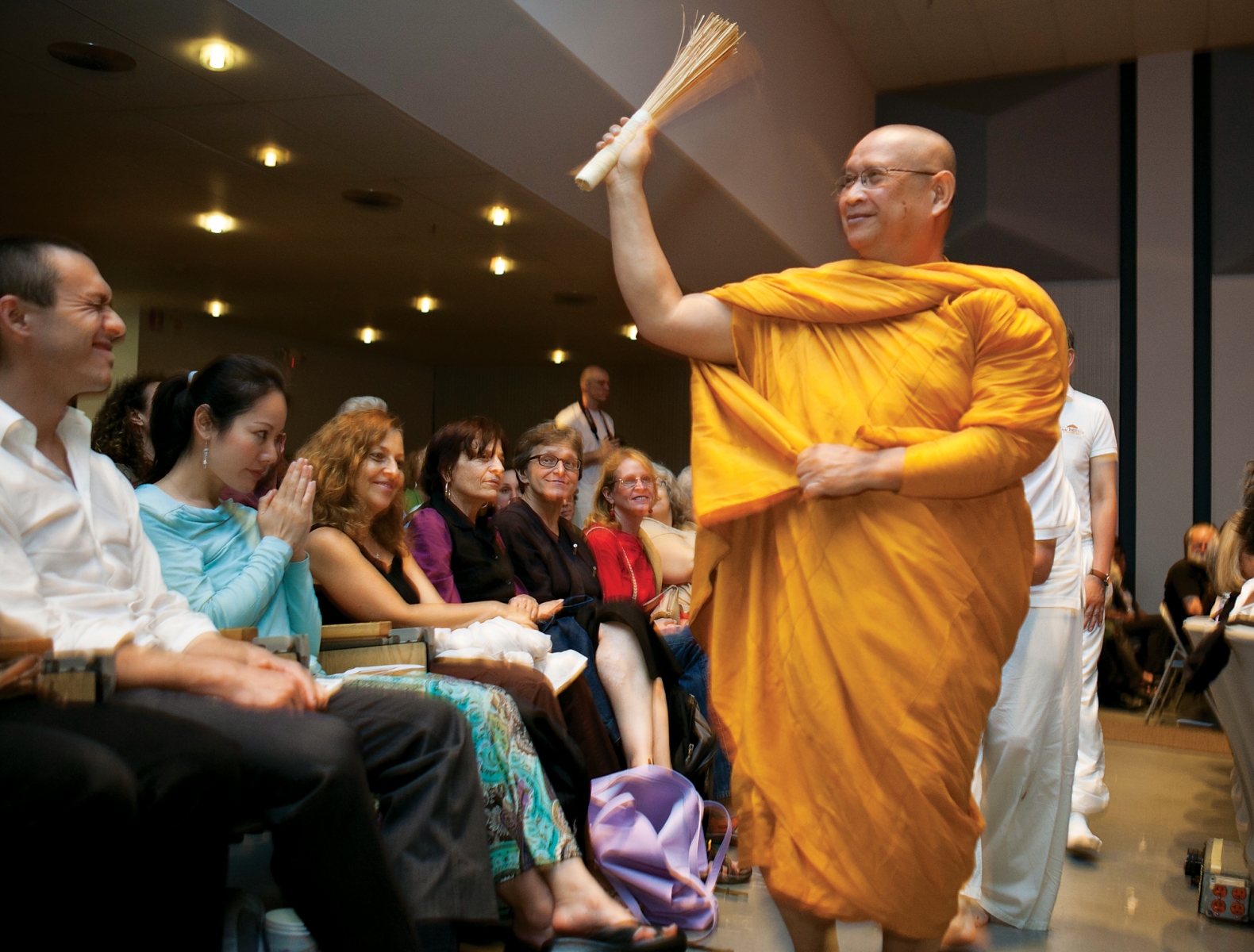
Another secular trend making its way into spiritual circles is the “festival” concept, which Gabriel Riera and Eric Forbis have harnessed with aplomb. They’re the co-founders of Buddha-
Fest, an annual festival held at Artisphere in Rosslyn that explores Buddhist teachings and principles through film, talks and meditation. (The fifth annual event in June drew thousands, with speakers including Dan Harris, co-anchor of ABC News’ Nightline, on how he learned to control his panic attacks with meditation.)
“Most of the time we’re scattered. We’re doing one thing but thinking another,” Riera says. “The present moment is the most powerful moment we have.” He suggests taking five minutes a day to sit still and focus on the sensations you experience and the thoughts that arise in that stillness.
When Steve King moved to Arlington in 1983 to become pastor of Cherrydale Baptist Church on Lorcom Lane, the church’s congregation had dwindled from 900 to 150 over a period of seven years.
Today, its ranks have rebounded to include 1,200 parishioners. King, 66, attributes the uptick in attendance to a consistent Gospel-centered focus, a clear mission, vision and good teamwork.
Lyon Village residents Angela and Jim McHale joined the church in 2013 after a long period of soul-searching. Though Angela, 36, was raised Catholic, and Jim, 48, grew up Episcopalian, the couple say they finally felt at home at Cherrydale Baptist, and that its teachings have imparted a wisdom that helps them navigate their crazy schedules and the challenge of raising three kids.
“You can feel very anonymous in this very populated area,” Angela says. “We live in a difficult world where a lot of bad and seemingly senseless things happen. [For me,] faith promises true hope, true joy and true peace.”
McLean residents Liz and Andy Jones (not their real names) have taken a different path. Liz, 48, describes herself as a “lapsed Catholic,” while Andy, 45, has Jewish roots but considers himself atheist. The fact that neither is particularly religious has mitigated any conflicts that might arise over faith-based traditions at home (for example, they celebrate both Christmas and Hanukkah, in a secular way, with their boys, ages 9 and 13). But the kids do occasionally ask about God.
“I tell them some people believe in God and some people don’t,” Liz says, “and whether they do is something they will have to discover for themselves as they get older.”
A question we all must consider as we find our place in the world.
Rise of the “Nones”
Nearly one in five U.S. adults today (about 46 million) are religiously unaffiliated, according to studies by the Pew Research Center’s Religion & Public Life Project. But that’s not to say they aren’t spiritual in some way. Here are some interesting findings about so-called “nones.”
74% were raised with some religious affiliation
68% believe in God
58% feel a deep connection with nature and the Earth
37% call themselves “spiritual” but not “religious”
21% pray every day
Jenny Rough recently traveled with a tour group from Grace Community Church to Israel, where she rode a camel, visited the Mount of Beatitudes and developed an addiction to falafel.
